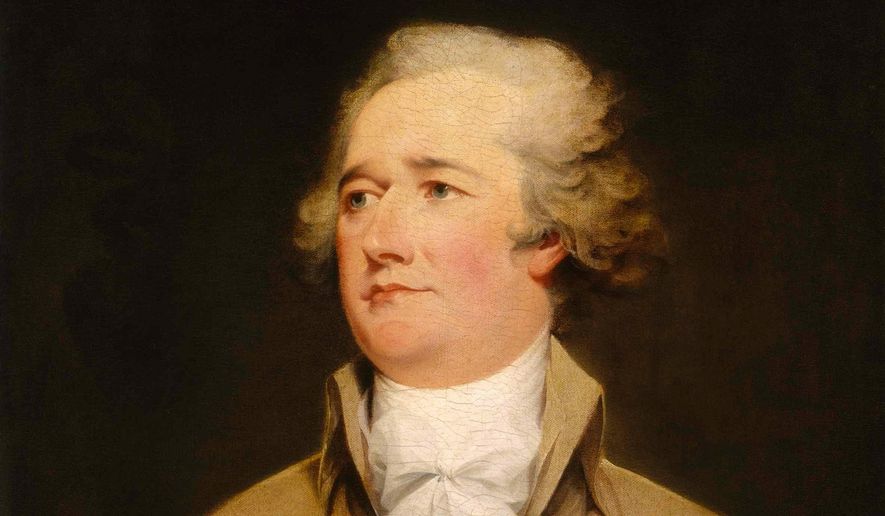Here we go again.
Another Obama sneer at the U.S. Constitution.
This time it’s the treaty power.
The president plans to conclude a nuclear arms control agreement with Iran in seven months that will not be submitted to the Senate for ratification by a two-thirds vote as a treaty.
He anticipates that the Senate will balk at his nuclear-arms handiwork. He thus will characterize his nuclear-arms deal as an “executive agreement” to circumvent the Constitution’s treaty provisions. In the manner of Humpty-Dumpty, Mr. Obama intends to make the word “treaty” to mean whatever he chooses it to mean — neither more nor less. But to borrow from Romeo and Juliet, a treaty by any other name is still a treaty.
Article 2, section 2, clause 2 of the Constitution empowers the president to “make treaties” with the advice and consent of the Senate, “provided two thirds of the Senators present concur.” Nowhere does the Constitution reference executive agreements.
The Constitution’s makers distrusted the president in international affairs. Alexander Hamilton elaborated in Federalist 75:
“But a man raised from the station of a private citizen to the rank of chief magistrate, possessed of a moderate or slender fortune, and looking forward to a period not very remote when he may probably be obliged to return to the station from which he was taken, might sometimes be under temptations to sacrifice his duty to his interest, which it would require superlative virtue to withstand. An avaricious man might be tempted to betray the interests of the state to the acquisition of wealth. An ambitious man might make his own aggrandizement, by the aid of a foreign power, the price of his treachery to his constituents. The history of human conduct does not warrant that exalted opinion of human virtue which would make it wise in a nation to commit interests of so delicate and momentous a kind, as those which concern its intercourse with the rest of the world, to the sole disposal of a magistrate created and circumstanced as would be a President of the United States.”
Even international agreements of diminutive national significance have been characterized as treaties under the Constitution, for example, the Migratory Bird Treaty of 1918. And every prior agreement relating to nuclear weapons has been submitted to the Senate as a treaty requiring ratification by a two-thirds majority. The list is long and impressive, including:
*The Limited Test Ban Treaty of 1963.
*The Outer Space Treaty of 1967.
*The Latin America Nuclear Free Zone Treaty of 1967.
*The Nuclear Non-Proliferation Treaty of 1968.
*The Seabed Treaty of 1971.
*The Strategic Arms Limitation Treaty of 1972.
*The Anti-Ballistic Missile Treaty of 1972.
*The Peaceful Nuclear Explosions Treaty of 1976.
*The Strategic Arms Limitation Treaty II of 1979.
*The South Pacific Nuclear Free Zone Treaty of 1985.
*The Intermediate-Range Nuclear Forces Treaty of 1987.
*The Strategic Arms Reduction Treaty of 1991.
*The Comprehensive Test Ban Treaty of 1996.
*The Strategic Offensive Reductions Treaty of 2002.
*The International Convention for the Suppression of Acts of Nuclear Terrorism of 2005.
*The New Strategic Arms Reduction Treaty of 2010.
The Department of State’s Foreign Affairs Manual states that past practice regarding similar international agreements is pivotal to determining whether a new agreement should receive treaty treatment. Equally weighty is whether the agreement involves “risks affecting the nation as a whole,” which a nuclear pact with Iran clearly will.
Sen. Bob Corker, Tennessee Republican, will be the chairman of the Senate Foreign Relations Committee in the 114th Congress, which convenes Jan. 3. He should not tarry in holding hearings on the obligation of President Obama to submit any nuclear agreement with Iran to the Senate for ratification. The committee should refuse to act on any presidential nomination until an affirmative answer is forthcoming.
The Constitution is clear. International agreements involving nuclear weapons are too important to be left to the president alone.
For more information about Bruce Fein, visit brucefeinlaw.




Please read our comment policy before commenting.